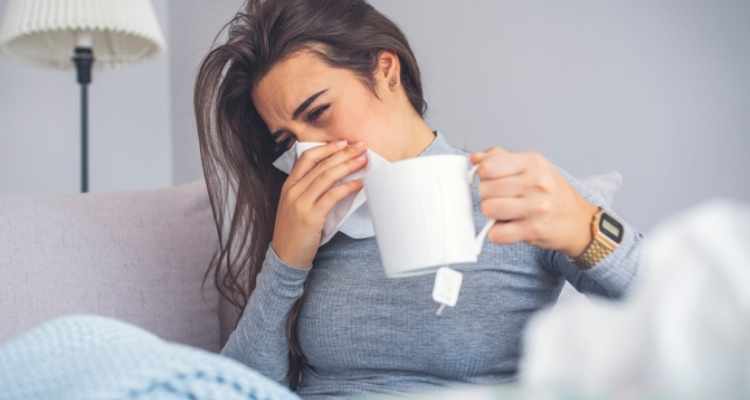Flu season is inevitable. But when is it at its peak? And what can you do to prepare for it? Read on to learn more before knowing what necessities you might need from your local pharmacy for flu season.
When is Peak Flu Season & When Does It Occur?
Many people don’t realize there is such a thing as peak flu season. Like other seasons, the time of year when the flu is most common has a beginning and an end.
In most places, peak flu season usually occurs between December and February. The flu season is unpredictable, with cases from early October to late May. Not doubting the flu shot is one of the most critical vaccinations you can get yearly.
A vaccine is a vital tool in fighting the virus and helps keep you safe from catching it. The best way to protect others who come into contact with infected blood or organs, like surgeons during procedures, would be if they vaccinated themselves.
However, many people are unsure when the best time to get their flu shot is.
While some health experts recommend getting vaccinated early in the season, others say waiting until peak season is more effective. So, what’s the best time to get your flu shot?
The answer may surprise you, but the best time to get your flu shot is during peak season.
By getting vaccinated when the virus is most active, you’re more likely to build immunity before exposure to the disease. In addition, getting vaccinated later in the season can help protect those most vulnerable to the virus, such as young children and the elderly.
While some people get the flu outside the peak season, the chances are much higher during these months. So if you’re looking to avoid getting sick, it’s best to take extra care during peak flu season.
During this time, pharmacy shelves are stocked with over-the-counter medicines and vaccines as people race to protect themselves from the virus.
The Symptoms of the Flu vs the Common Cold
Respiratory illnesses are one of the leading causes of why people visit their doctor’s office. The flu and common cold can be very painful, with coughing fits that leave you with no air in your lungs.
However, there are some key differences between the two.
The flu is more severe and can cause serious health complications. In contrast, the common cold is usually less severe and resolves independently.
Symptoms of the flu include:
- fever
- chills
- body aches
- fatigue
- headache
Symptoms of the common cold include:
- runny nose
- congestion
- cough
- sore throat
If you think you have the flu, you must see a doctor as soon as possible. Early treatment with antiviral medication can help to shorten the duration of the illness and reduce the risk of complications.
How to Stay Healthy During Peak Flu Season
The flu is no joke. Every year, millions of people suffer from this potentially deadly disease. But the good news is that there are several things you can do to protect yourself from the flu, including getting vaccinated and washing your hands regularly.
Even if you don’t feel sick, getting vaccinated can still protect against the flu.
The vaccine helps your body build up immunity to the viruses that cause the flu, making it less likely that you’ll get sick if exposed to them. And even if you get sick, the vaccine can help reduce the severity of your symptoms.
Washing your hands is also crucial for preventing the spread of the flu.
Be sure to wash your hands thoroughly and often, especially after coming into contact with someone sick or after touching surfaces contaminated with the virus.
The flu is a real threat. Nothing fun about having to nurse you or someone you know through the flu. Equipped with this information, you should do your best to remain healthy during peak flu season. Not only are you protecting your health, but also others’ health. In this small way, you can help reduce fewer flu cases even at the peak of flu season. In essence, following these simple precautions can reduce your risk and others. So don’t wait – get vaccinated and make a habit of washing those hands!

